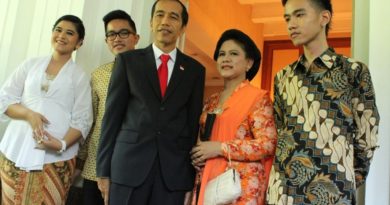EDITORIAL-OPINION: Online hate fuels divide
EDITORIAL- BANGKOK POST

The past few weeks have seen the country plunge into a deep divide, with people on opposite sides of the political spectrum exploiting social media and digital platforms to exchange hate speech.
Some media outlets, printed and electronic, have played a role in spanning hatred towards people with different ideas — such as the pro-democracy activists who stood up and challenged those in power during a series of rallies. Attempts have been made to project those demanding reforms as “enemies of the state” with confrontations escalating. The pro-democracy groups have been portrayed as “crossing the line” and heavy-handed measures, the use of sedition laws and intensified anger have ensued.
.
As the country remains haunted by the massacre of 1976 — when the state established a network of ultra right-wing groups who joined in the bloody crackdown of students protesting the return of an exiled leader, Thailand should be particularly concerned over the situation and those with the power to do so must do whatever it takes to avoid that kind of violence again. The bloodshed of 1976 has left historical scars Thais will never forget.
A number of critics have raised concerns over what is seen to be a similar situation that could lead to violent confrontation.
As hatred on digital platforms became rampant, the government has seemingly turned a blind eye as it has prepared no mechanism or legal measures to tackle these online confrontations.
There are also accusations that the military has engaged in measures to target its “opponents”.
.
During the no-confidence debate earlier this year, Viroj Lakkana-adisorn, an MP of the now-dissolved FFP, exposed the army’s information operation against people, with details about payments in military units for the illicit task.
Worse, he alleged some officers intentionally spread a swathe of fake news that intensified ill feelings, sowing division in society.
Those targeted were mostly civic rights activists. The army staunchly denied the accusations.
However, army chief Apirat Kongsompong who is stuck in outdated security ideas, is often criticised for his use of divisive rhetoric, attacking critics and activists and branding those refusing to endorse ultra-nationalism as “nation haters”.
There has been no attempt by the state to regulate hate speech from the opposing sides that ignite political tensions.
.
The lack of a legal framework in managing hatred must be immediately addressed.
State authorities should be trained to recognise elements of hatred in order to react proactively, dousing the flames of what could escalate into violence.
Responsible agencies such as the Digital Economy and Society (DES) Ministry under Buddhipongse Punnakanta must know that it’s time to focus on the matter.
The ministry, in particular, should work with other agencies, police and local administrators, for instance, so they can stay alert for untoward developments.
The Ministry of Culture, known for its overt obsession with “Thainess” and all the important traditions often associated with it such as dance, performance and ancient architecture, should look into the possibility of embracing new tasks.
It might be worth considering a campaign that seeks to imbue the right attitude among citizens, ensuring that every citizen is able to accept society’s differences, an important element for democracy.
.
EDITORIAL
BANGKOK POST EDITORIAL COLUMN
These editorials represent Bangkok Post thoughts about current issues and situations.
Email : [email protected]
.


SIGN UP TO RECEIVE OUR EMAIL
.
The most important news of the day about the ASEAN Countries and the world in one email: [email protected]
8.27.2020










